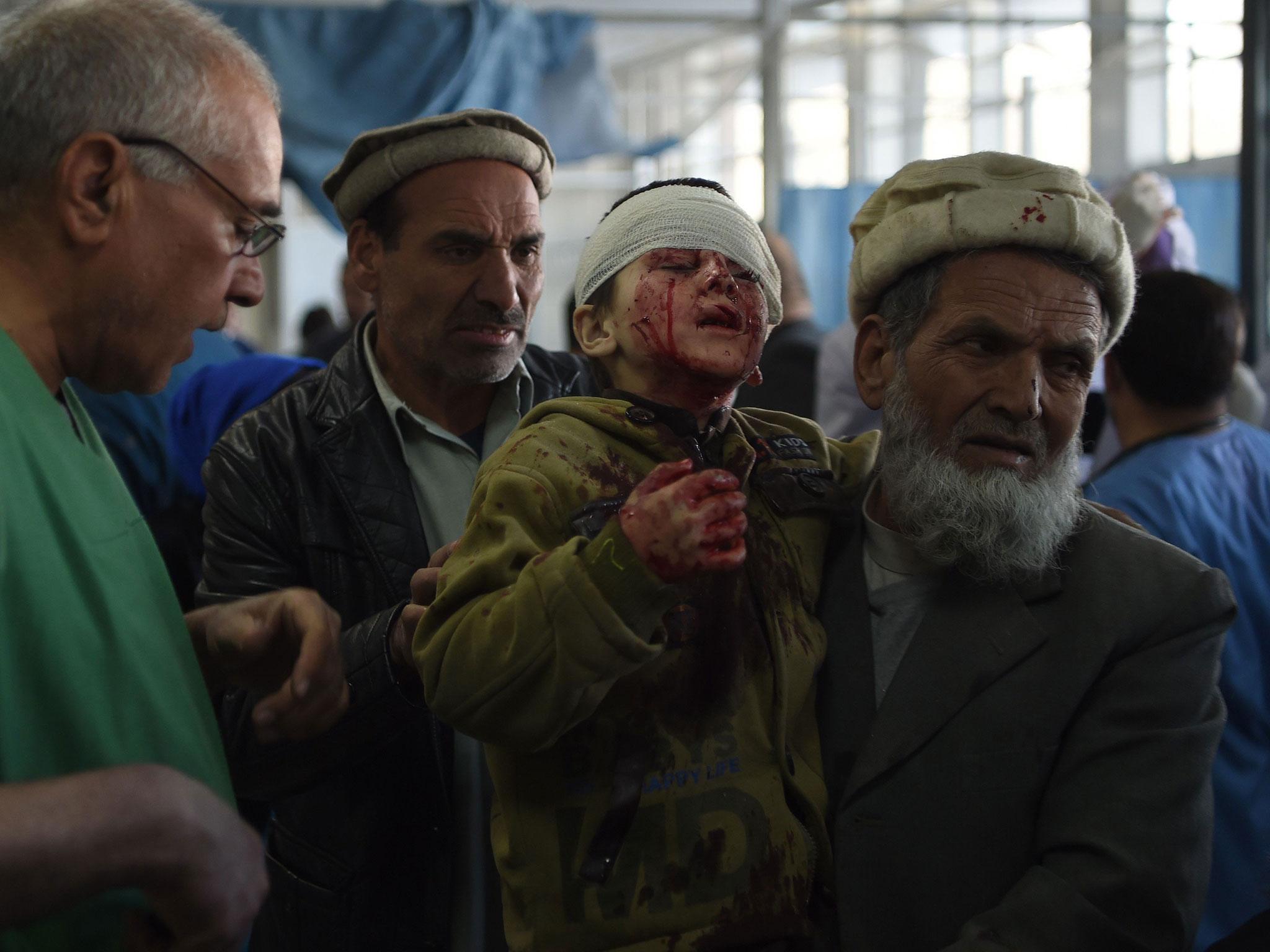Wave of Kabul terror attacks 'linked to Trump's aid withdrawal', say Afghan officials
Analysis: Officials say the upsurge of atrocities on their land is a direct response to the move

The lethal attack on the military academy killing 11 soldiers was the fourth on Kabul in just over a week. It followed a car bombing in the city centre and assaults on a hotel and a Shia cultural centre claiming, between them, well over 100 lives. The insurgents have been targeting the Afghan capital for a while, but there are claims of a wider dimension of regional geopolitics behind the latest bloodbath.
After the steady loss of ground to the Taliban, Haqqani Network, and newly arrived Isis since the official end of the international combat mission five years ago, some territory has been gained back recently with US forces bolstered by reinforcements.
There has also been the important development regarding neighbouring Pakistan. Western and Afghan governments have repeatedly accused the country of feeding and watering Islamist terrorism with elements in the country’s military and the secret police, ISI, orchestrating bombings and shootings across the border. The Trump administration has now suspended $2bn (£1.4bn) in aid for the Pakistani military and warned that the money will be withheld until the government in Islamabad lives up to its pledge of tackling the insurgents’ safe havens.
Afghan officials claimed that the upsurge of atrocities on their land is a direct response to the move.
The head of the country’s intelligence service, NDS (National Directorate of Security) Masoom Stanekzai, stated that these were deadly attempts by the Pakistani backers of the insurgency to show they cannot be sidelined. A senior diplomat in Kabul, Majeed Qarar, said there was evidence that the equipment used in the attacks had been given by the Pakistani military to Islamist fighters in Kashmir as well as Afghanistan. He also claimed that some of it had been supplied by a firm in the UK.
Mr Qarar tweeted: “The night vision goggles found with Taliban attackers in ... ANA [Afghan National Army] base were military grade goggles (Not sold to the public) procured by Pak[istan’s] army from a British company & supplied [to] Lashker-e-Tayeeba in Kashmir & Taliban in Afghanistan.”
This follows statements by the NDS after the attack on the Intercontinental Hotel which killed 22 people, including 14 foreigners, that “the explosive materials seized in the vehicle shows that the material is made in Pakistan” and had been traced to a company based in Islamabad. In Washington, White House spokesperson Sarah Huckabee Sanders said: “We call on Pakistan to immediately arrest or expel the Taliban’s leaders and prevent the group from using Pakistani territory to support its operations. In Afghanistan, where terrorists attacked the hotel in Kabul, such attacks on civilians only strengthen our resolve to support our Afghan partners.”
The Afghan government also maintained there was Pakistani collusion in the suicide bombing that used an ambulance, which resulted in 103 deaths.
Pakistan has denied the accusation. “The people and the government of Pakistan condemn the terrorist blast in Kabul and extend heartfelt condolences to the families of those who lost their lives in this reprehensible act,” said a foreign ministry spokesman. “Terrorism is not the way forward.”
Attacks on Kabul had been relatively rare in the past. They began to grow in numbers, ironically, after attempts by Ashraf Ghani, then Afghanistan’s newly elected president, to reach out to the Pakistani military and ISI.
Mr Ghani’s predecessor, Hamid Karzai, had regularly and bitterly blamed Pakistan for attacks on his country. In his first visit to Pakistan Mr Ghani broke protocol by visiting the hierarchy of the Pakistani army and ISI, instead of the elected government. The plan, said his advisers, was that they would persuade the Taliban to suspend attacks and come to the negotiating table.
Two years on, Mr Ghani acknowledged the approach had failed and was accusing Pakistan of providing sanctuaries for terrorists. He also stated that the Trump administration was going to take a tougher line with Pakistan than its predecessors in Washington.
Join our commenting forum
Join thought-provoking conversations, follow other Independent readers and see their replies
0Comments